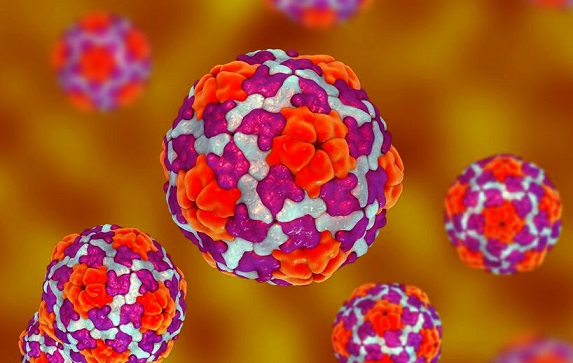Hepatitis A Cases Surge in Czech Republic with Authorities Reporting 2,141 Infections and 26 Deaths
Nikhil Prasad Fact checked by:Thailand Medical News Team Oct 23, 2025 4 months, 2 days, 2 hours, 54 minutes ago
Medical News: Prague Reports Sharp Rise in Infections
Health authorities in the Czech Republic are grappling with an alarming rise in hepatitis A infections, with Prague identified as the epicenter of the current outbreak. In just one week, doctors in the capital reported over 61 new cases—nearly matching the total number of infections recorded during the previous three years combined. According to the National Institute of Public Health (SZÚ), there have been 2,141 confirmed cases nationwide as of October 5, marking the second-highest incidence since 1989.
 Hepatitis A Cases Surge in Czech Republic with Authorities Reporting 2,141 Infections and 26 Deaths
Hepatitis A Cases Surge in Czech Republic with Authorities Reporting 2,141 Infections and 26 Deaths
Health officials also confirmed that 26 people have died from the disease so far, a significant increase compared to only two fatalities recorded last year. “Most deaths occurred in people with risky behavior and chronic liver disease,” said Kateřina Fabiánová, Deputy Head of the Epidemiology Department at the SZÚ. She added that in such individuals, the course of hepatitis A can be severe or even fatal due to preexisting health vulnerabilities. The risk is notably higher among older adults and those with weakened immune systems. This
Medical News report underscores that the growing outbreak in Prague is now spreading beyond city limits, raising concern among neighboring regions and healthcare administrators.
Prague Accounts for Nearly Half of All Cases
Since the start of the year, nearly 890 infections have been recorded in Prague alone, including around 160 cases involving children. The capital now accounts for more than 40 percent of all cases nationwide. Petra Batók, spokeswoman for the Prague Hygiene Station, warned that “in Prague, we are already talking about a local epidemic,” emphasizing that the surge in infections is beginning to spill into other parts of the country.
Experts attribute the spread to factors such as poor hygiene, contaminated food, and close personal contact, particularly in high-risk populations. The outbreak is also believed to be exacerbated by limited vaccination coverage and increased travel and social gatherings following the easing of pandemic restrictions.
Understanding the Disease and Prevention Measures
Hepatitis A is a viral infection that affects the liver and can range from mild to severe. Common symptoms include fever, fatigue, nausea, abdominal pain, vomiting, loss of appetite, dark urine, pale stools, jaundice (yellowing of the skin or eyes), and diarrhea. While most patients recover fully within weeks, some cases can persist for months or lead to life-threatening complications, particularly in individuals with chronic liver disease.
The virus spreads primarily through the ingestion of food or water contaminated by fecal matter from an infected person. Public health experts stress that maintaining proper hygiene, avoiding risky behaviors, and ensuring safe food handling are essential to preventing transmission.
r />
Vaccination and Public Health Response
Health authorities continue to urge citizens to get vaccinated, noting that vaccination remains the most effective preventive measure. The vaccine can also prevent infection if administered soon after exposure to an infected individual. The Czech government is currently coordinating with regional health centers to expand immunization campaigns, improve sanitation awareness, and contain the outbreak before it escalates further.
The situation in Prague highlights the importance of public vigilance and proactive health measures to curb the disease’s spread. As health officials work to contain the epidemic, residents are being urged to practice strict hygiene and seek vaccination promptly. The coming months will be crucial in determining whether the country can prevent hepatitis A from becoming a nationwide health emergency.
In conclusion, the resurgence of hepatitis A in the Czech Republic serves as a stark reminder of how quickly infectious diseases can reemerge when public vigilance wanes. Strengthening vaccination efforts, promoting hygiene education, and ensuring early diagnosis will be vital in halting further transmission and protecting vulnerable populations.
Reference:
https://szu.gov.cz/aktuality/katerina-fabianova-pro-mf-dnes-epidemie-zloutenky-muze-trvat-jeste-nejmene-dalsi-rok-az-dva/
For the latest Outbreak News, keep on logging to Thailand Medical News.
Read Also:
https://www.thailandmedical.news/articles/coronavirus
https://www.thailandmedical.news/articles/infectious-diseases
